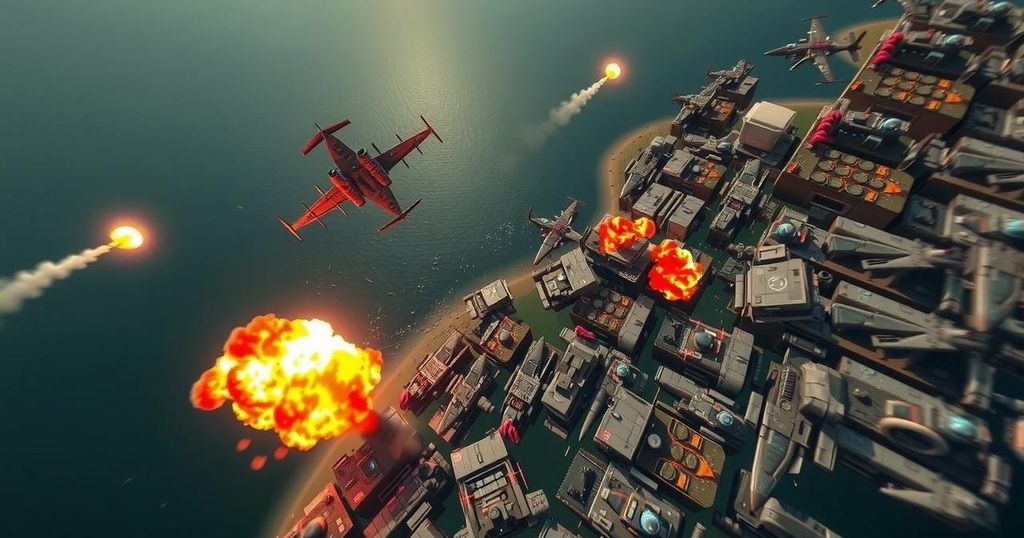Israeli airstrikes have resulted in over 100 deaths across Gaza and Lebanon, with significant casualties reported, including civilians in a sheltering school. The offensive continues to elicit international concern and calls for legal accountability. Former Israeli officials express doubts regarding military strategy effectiveness, while new military purchases signal ongoing conflict preparations.
Recent developments in the ongoing Israel-Palestine conflict have resulted in significant casualties across both Gaza and Lebanon. Israeli airstrikes have claimed the lives of over 100 individuals in total, with reports indicating that at least 52 Palestinians were killed in attacks within Gaza on a single day. Notably, 12 fatalities were reported following an airstrike on a school sheltering displaced persons in Shati refugee camp, Gaza City. In Lebanon, the violence has not spared civilians, with 53 deaths recorded by the Ministry of Public Health, alongside 161 injuries incurred from Israeli raids in the past 24 hours. The situation escalated further when six Malaysian peacekeepers were injured as a consequence of an Israeli drone strike near Saida Stadium, leading to three additional fatalities. Former Israeli Defense Minister Yoav Gallant has raised concerns regarding the high costs associated with continued military actions in Gaza, questioning the feasibility of influencing Prime Minister Netanyahu towards a ceasefire. In response to international reactions, Ireland has expressed intentions to support South Africa’s legal case against Israel at the International Court of Justice by year-end. Furthermore, Israel has finalized a substantial defense contract for the purchase of US-made F-15 aircraft, valued at $5.2 billion, according to its Ministry of Defense.
The Israel-Palestine conflict, marked by its prolonged history of violence and geopolitical complexities, continues to incite significant global concern. Recent escalations have amplified hostilities, particularly with Israeli military operations intensifying across Gaza amid high civilian casualties. Lebanon also faces escalatory violence, with regional instability contributing to the casualties. International responses have varied, with some countries calling for legal accountability and advocating for ceasefires, while military agreements, such as the recent deal for advanced aircraft, depict ongoing preparations for further conflict involvement. The situation is compounded by humanitarian crises resulting from the strikes, particularly in refugee camps in Gaza. The implications of these developments threaten to destabilize the region further, necessitating urgent calls for diplomatic resolutions and humanitarian assistance.
The conflict’s recent developments signal a grave humanitarian toll, with substantial loss of life reported across both Gaza and Lebanon. The targeting of civilian structures, including schools, raises serious concerns over adherence to international humanitarian laws. Meanwhile, the regional ramifications of escalating violence pose a risk of broader conflict, which could involve international judicial scrutiny and further military engagement by Israel. The need for a ceasefire and diplomatic discourse is underscored by the severe humanitarian consequences of these hostilities, calling for urgent intervention from global powers.
Original Source: www.aljazeera.com






